Self-harm, or self-injury, is when someone deliberately does something to hurt themselves. There are lots of different reasons why this happens. Suspecting or discovering that your child is has self-harmed can be really distressing, but there are lots of things you can do to help them, and there's lots of support available for the whole family.
Self-harm isn’t something that only affects children and young people – people of all ages can self-harm, and there is support available for everyone.
What is self-harm?
Self-harm is any behaviour which causes or has the potential to cause harm. For example, it can involve things like cutting, scratching, hitting or burning, pulling hair out or taking too much medication. It can also include things like getting into fights or drinking alcohol, or psychological harm, through negative self-talk or self-trolling.
Usually this behaviour happens in secret, as a way of coping with strong or difficult emotions that build up inside. Unfortunately, the release the harming leads to doesn’t last, and it can become a serious problem. So if you suspect your child or teen may be self-harming, it’s important to respond in the right way.
Why do children and young people harm themselves?
Everyone who self-harms has different reasons. But many young people who self-harm are using it as a coping mechanism. For example, they may be hurting themselves:
- to feel as if they’re in control of something, when the rest of their life feels out of control.
- to punish themselves, because they feel they’ve done something wrong or something is their fault.
- to cope with overwhelming challenges in their life, such as bullying, family problems, bereavement, loneliness, pressures at school, abuse or illness.
- to release feelings of anger, tension, anxiety or emotional pain
- because they feel numb or ‘dead inside’, and it helps them feel more alive.
In some cases young people may be influenced to use self-harm as a coping mechanism by their friends or by what they see on social media. This is another reason why it’s important to talk to your child regularly so you have an idea of who their friends are and what they’re up to, offline and online. Our page on talking to your teen and section on online safety has more advice on this.
Self-harm myths
There are a few myths about self-harming that it’s good to understand:
- Self-harming isn’t ‘attention seeking’ – but it can be a way of communicating a need for care and attention.
- Self-harming isn’t a mental health condition, it’s a behaviour, sometimes used as a way of coping.
- Anyone of any age, gender, sexuality and background can self-harm, including parents – it isn’t just teenage girls.
How can I help?
There’s nothing you can do that will guarantee your child won’t self-harm. But there are some things you can try that might help. For example:
- Keeping lines of communication open by talking regularly with your child means they’ll be more likely to come to you if something goes wrong, instead of bottling it up. Our pages on encouraging your child to confide in you and talking and listening to your teen can help you with these conversations. There’s also helpful advice on talking to your child about mental health and self-harm on the Self-Harm Network Scotland website.
- If your child seems to be having problems with their self-esteem or confidence our pages on helping to build their confidence and helping teens become more resilient and build self-esteem have tips that may help.
- Encouraging your child to relax doing things they enjoy will help them learn to deal with stress. Our pages on supporting your child’s mental health and supporting your teen’s mental health have more advice.
What are the signs?
If you’re worried your child may be self-harming, here are some signs to look out for. Bear in mind that some of these could also just be signs that your child is growing up, so try not to jump to any conclusions. On the other hand, young people who self-harm can be very secretive about it so don’t be upset with yourself if the signs aren't there.
Things to look out for include:
- unexplained cuts, burns or bruises
- if they start part in risky activities, like drinking alcohol or taking drugs
- if they start keeping themselves covered, for example, wearing long sleeves in warm weather, avoiding changing their clothes in front of you or ducking out of activities like swimming
- becoming withdrawn or isolated
- seeming down or depressed, or losing interest in things they used to enjoy
- not caring about their appearance any more
- blaming themselves for things or expressing feelings of failure, uselessness, hopelessness or anger.
What should I do if I suspect my child may be self-harming?
If you’re concerned your child is self-harming, the first thing to do is to try talking to them. Rather than jumping in feet first and asking them about self-harm, it might be better to try a softer approach. For example, you could say that you’ve noticed they’ve been low or withdrawn recently, and ask them why.
Let them know that you love them, and that this will never change. And remind them they can talk to you about anything and that you’re there to support them. There’s helpful advice on talking to your child about mental health and self-harm on the Self-Harm Network Scotland website.
At this point they may not be ready to open up to you, but they may remember what you say and talk to you later.
You could also remind your child that if they’d rather talk to someone else, they could speak to a teacher or counsellor at school, or at an organisation like Childline or The Mix.
What should I do if I find out my child is self-harming?
Your child may eventually tell you they’re self-harming, or you may find out from their friends, another family member or a teacher.
Finding out your child is self-harming can be incredibly upsetting and stressful. It’s normal to feel all kinds of strong emotions, including anger, shock, sadness, helplessness, confusion and shame. It’s also really common for parents to blame themselves, or feel that they’ve failed their child somehow. Or to look for someone else to blame, like their school.
But the best thing you can do is to try and stay calm and focus on supporting your child through this difficult time. Here are some tips – you can find more advice on the Self-Harm Network Scotland website.
Tip #1: Talk to them
You may be worried about talking to your child about the situation in case you say something wrong and make things worse. But bottling things up or pretending everything’s fine won’t help anyone. You may not always say the right thing, but as long as you tell your child you love them and give them plenty of opportunity to talk to you when they’re ready, you’ll be off to a good start.
Tip #2: Listen
Give your child your full attention and really listen to what they have to say. Try not to worry about what you’re going to say next, just concentrate on what they’re saying, and try not to offer lots of solutions.
Tip #3: Reassure them that their feelings are real
Emotions can feel huge and overwhelming to young people. Let them know that you understand this, and there’s nothing wrong with feeling like this.
Tip #4: Don’t take away the things they use to self-harm
As a parent, your first instinct is to protect your child. But in fact it's best not to remove anything that your teen uses to harm themselves or look after themselves following a self-harm incident.
Taking these things away can make them feel that they’ve done something wrong or ‘bad’ and leave them feeling more distressed. Self-harm is a coping strategy. Removing their coping strategy that currently works for them may result in them adopting an alternative, and potentially more dangerous, way of coping.
Tip #5: Offer practical help with injuries
Let them know that if they hurt themselves, you’re there to help. Make sure you’re well stocked with antiseptic, plasters and bandages, and show you care by helping them keep their wounds clean and safe.
Tip #6: Be honest
If you don’t understand why they’re self-harming, it’s okay to let them know this. Your child may not know either, and talking it through may help them work out what triggers them.
Tip #7: Help them find alternatives
Try to find different ways for your child to deal with powerful emotions that don’t involve hurting themselves. Things other young people have found helpful are:
- distracting themselves by listening to music or watching a favourite film or programme
- getting out of the house – going for a walk, catching a bus or going for a drive
- writing things down or keeping a video diary
- contacting a friend
- having a relaxing bath or shower
- spending time with a pet
- using an app like Calm Harm to distract them
- trying some breathing exercises
- clenching an ice cube in their hand until it melts
- snapping an elastic band around their wrist
- drawing on their skin with a red pen instead of cutting
- putting a plaster, bandage or temporary tattoo over the area they feel compelled to hurt
- scribbling very hard on a piece of paper
- doing some exercise
- hitting a cushion or pillow.
You can find a helpful tool on the Childline website that suggests techniques for managing self-harm urges.
Tip #8: Problem solve together
No one expects you to have all the answers. Talk to your child about what you can do together to make things better. This could be practical things, like making an appointment with your GP or locking away sharp objects (including pencil sharpeners) and medication, if they ask you to. Or it could be supportive things like talking about their feelings and looking for patterns in the way they use self-harm, to see if they can spot any triggers.
Tip #9: Talk about other things
Many young people feel that once other people know about their self-harm, everything suddenly starts to revolve around that. Remember that your child is more than their self-harm – they’re still the person they were before.
Tip #10: Don't give up
Recovering from self-harm is a process and there are no quick fixes, so try not to get frustrated or disheartened. Staying as optimistic and hopeful as you can will be far more helpful for their recovery.
Can self-harm lead to suicide?
Although some people who self-harm may be suicidal, young people often self-harm as a way to manage difficult emotions without attempting suicide – it’s a way of coping and surviving.
However, any kind of injury can be dangerous so it’s important that your teen feels able to talk to you about any concerns they may be having, and is able to take care of themselves if they do self-harm.
Asking someone if they are suicidal is shown not to cause suicide, so if you’re concerned that your teen is having suicidal thoughts don’t be afraid to ask them if that’s how they are feeling. Our page on suicidal thoughts has more advice.
Getting help and support
You don’t have to cope with this alone. With your child’s permission, make an appointment with your GP. If your child refuses to come, you can always go by yourself. Your GP can signpost you to further sources of support, and possibly refer your child to your local Child and Adolescent Mental Health Services (CAMHS). Childline has a helpful page on how CAMHS can help.
It’s also a good idea to contact your child’s school counsellor or welfare officer.
There are also lots of organisations offering advice and support. Self-harm can affect anyone, not just teenagers, so if you’re experiencing self-harm yourself these organisations offer support to people of all ages.
- You can find links to organisations that can help on our page on getting support raising a teen.
- Self-Harm Network Scotland provides compassionate support, resources, and information to people who self-harm. They also provide support and information to friends, families and professionals.
- This guide from YoungMinds and the University of Oxford is full of helpful advice for parents and carers, including signposting to further sources of help.
- The National Self-Harm Network offers support, advice and advocacy services to anyone affected by self-harm.
- Harmless, the centre of excellence for self-harm and suicide protection offer resources and support around self-harm for young people and their parents or carers.
- Battlescars provides resources created by their service users, volunteers and staff, by people with lived experience.
In an emergency
If your child hurts themselves badly, you may need to take them to A&E or call 999. For example, you should call 999 if:
- they’ve taken an overdose of drugs, alcohol or prescription medication – try and find out what they’ve taken so you can tell the emergency staff
- they’re unconscious
- they’re in a lot of pain
- they’re having problems breathing
- they’re losing a lot of blood from a cut or wound
- they’ve burnt themselves badly
- they’re in shock after a serious cut or burn.
The NHS Inform website has more information about treating cuts and burns, including advice on when you should get medical help.
Looking after yourself
Supporting a child who is self-harming can be upsetting, stressful and exhausting. So it’s very important that you look after yourself too, or you won’t be able to help them.
- Make time to talk to a trusted friend or family member (see ‘talking to other family members’ below) or to an adviser on one of the helplines listed above. You may well have lots of strong emotions to process – or just need a chance to vent.
- Don’t neglect your own health – try to keep eating healthily, exercising regularly and getting enough sleep. It’s easy to let healthy habits slip when you’re stressed, but these habits will help you cope better so try to prioritise them when you can.
- Try and find time to have some fun together as a family. Maybe you could have a movie night, go to the park for a kick about or even bowling.
- If you feel upset or overwhelmed, try to do something you enjoy to relax, whether that’s having a bath with lots of bubbles, sitting in a café with a cuppa and a magazine, having a catch up with a friend or going for a walk. The time out will give you a bit of distance and help you cope better.
- Accept help from family and friends – you don’t have to do everything!
- Seek out support from other parents who may be going through similar experiences to you. For example, the National Self-Harm Network and Parenting Mental Health websites have forums you can join.
Our page on mental health advice for parents has more tips for coping with anxiety and stress.
If you’re experiencing self-harm yourself, the organisations listed above offer support to people of all ages.
Talking to other family members
Discuss with your child what you’ll tell other family members, including any brothers or sisters.
Your child may worry that people won’t understand, or will think they’re just looking for attention. But keeping things secret can be an extra burden on you and your child, and family members like aunts and uncles and grandparents can be a great source of support.
When you tell them, you could suggest they have a look at some of the websites we’ve listed in the support section, or you could download information for them, like the guide from YoungMinds and the University of Oxford. You could also chat to an adviser on one of the helplines listed above about how to talk to other family members about the situation.
If you do have other children it can be really difficult to spread your attention evenly if one of them has self-harmed. But try and spend some quality time with each child, and talk to them about their feelings and how to cope if they’re feeling upset or anxious. Our pages on supporting your child’s mental health and supporting your teen’s mental health have more advice.
Dealing with scars
Sadly self-harm may leave your child with scars. Remind them that there’s no need to be embarrassed about this, and that they don’t need to explain how they got them if they don’t want to.
If they’re self-conscious about them, products like bio-oil or vitamin E cream may help. This article on the Life Signs website has more suggestions.
Support for adults who self-harm
Self-harm isn’t something that only affects children and young people – people of all ages can self-harm in order to cope with difficult or overwhelming feelings. If you need support with self-harm, help is available.
- Self-Harm Network Scotland (SHNS) provides free compassionate support, resources, and information to people who self-harm. SHNS also provide support and information to parents and carers, friends, families and professionals.
- SHNS also offers a live chat that operates 7 days a week between 6pm and 10pm. This is a confidential service, staffed by peer practitioners and trained volunteers who understand what you’re going through and can offer out of hours, immediate support. Watch this video to find out more about their live chat service.
If you’re feeling distressed or experiencing thoughts of suicide right now, there are organisations who can support you with compassion and no judgement. Please reach out if you need them, they’re there to listen.
If you don’t feel you can keep yourself or someone else safe, please call the emergency services on 999 or go to your local A&E.
 Activities & Play
Activities & Play Behaviour
Behaviour Childcare
Childcare Development & Growing Up
Development & Growing Up Family, Friends & Relationships
Family, Friends & Relationships Feeding Your Baby
Feeding Your Baby Food & Eating
Food & Eating Health & Safety
Health & Safety Mental Health & Wellbeing
Mental Health & Wellbeing Money & Work
Money & Work Online Behaviour & Safety
Online Behaviour & Safety Pregnancy & First Days
Pregnancy & First Days School & Education
School & Education Sleep
Sleep

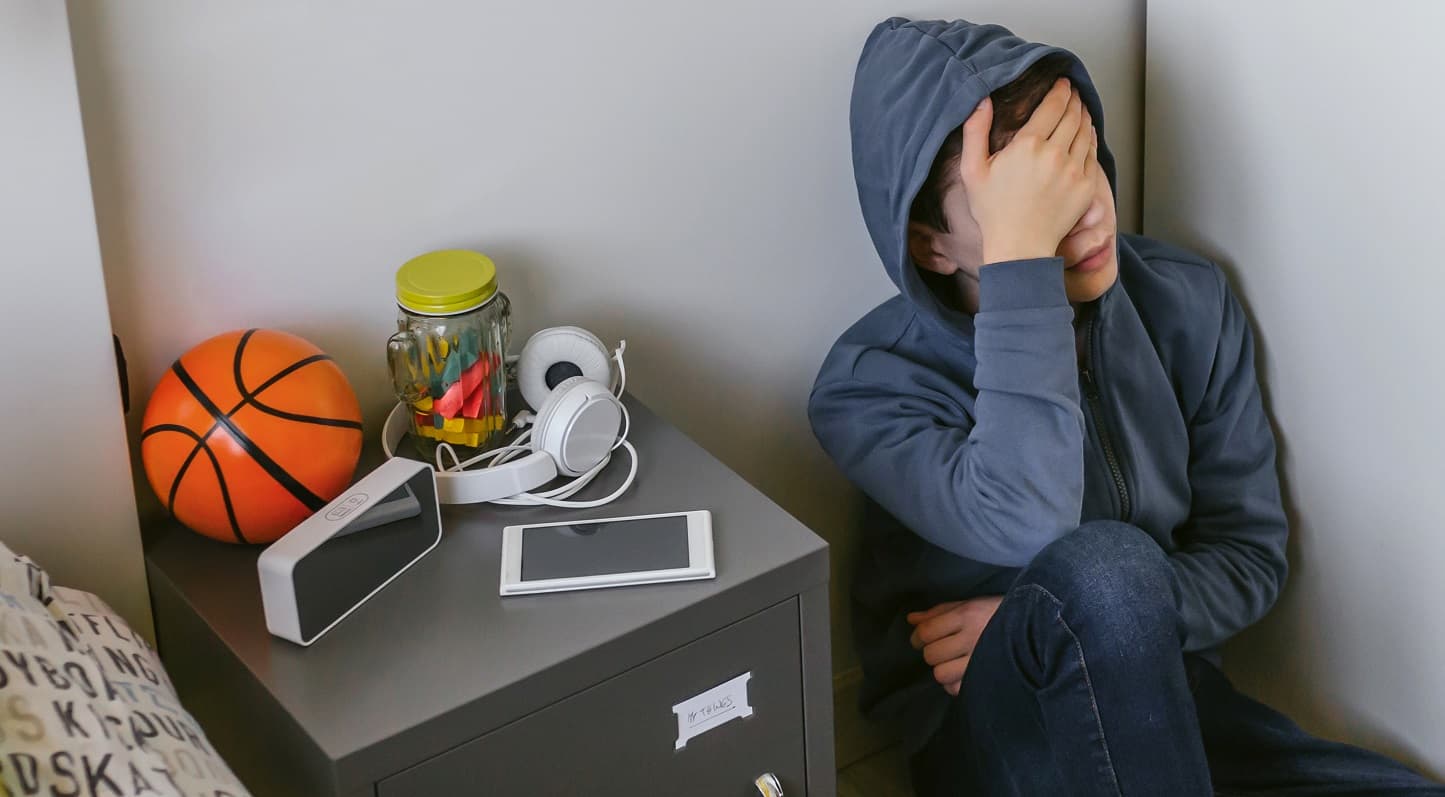
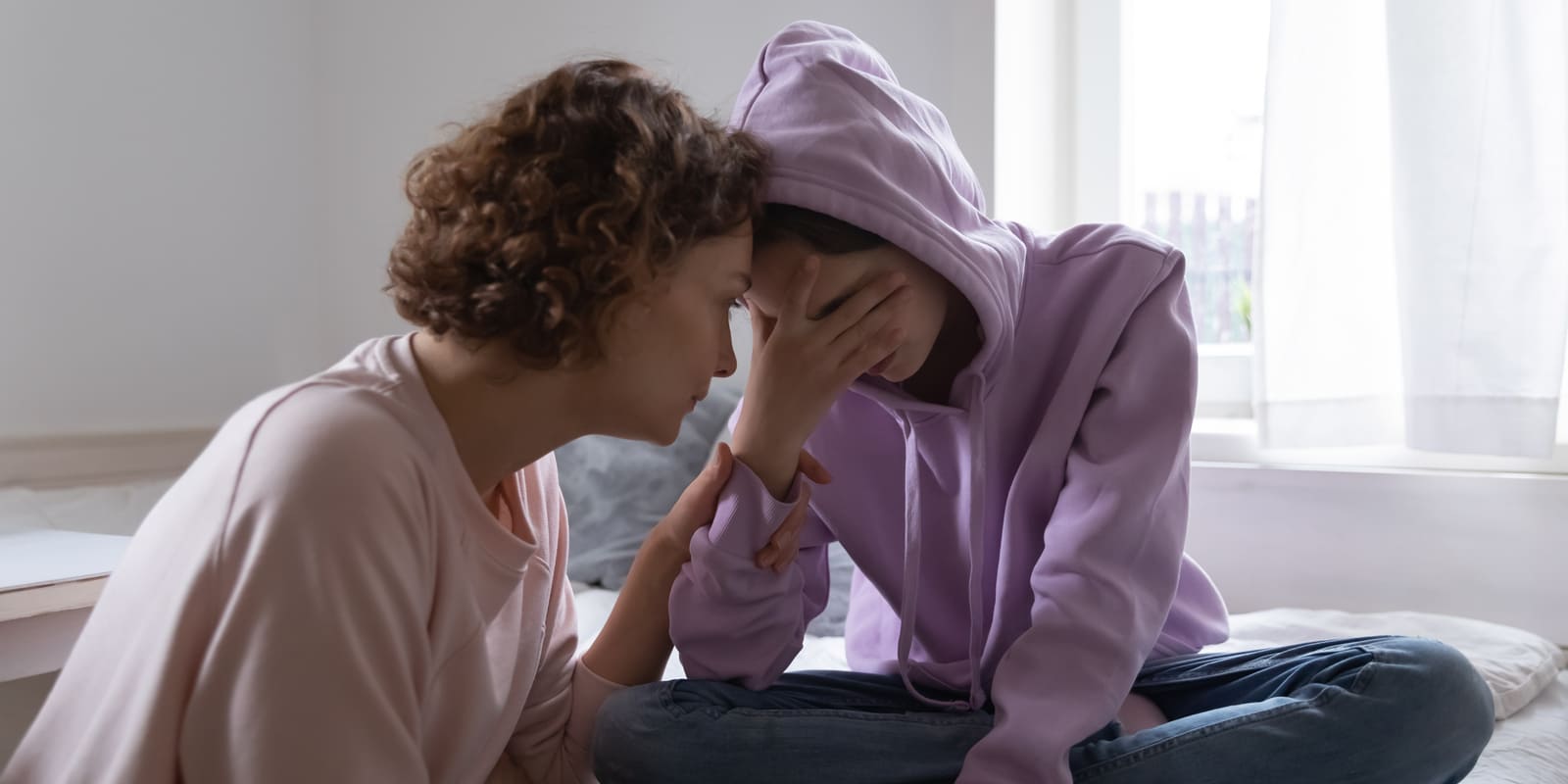
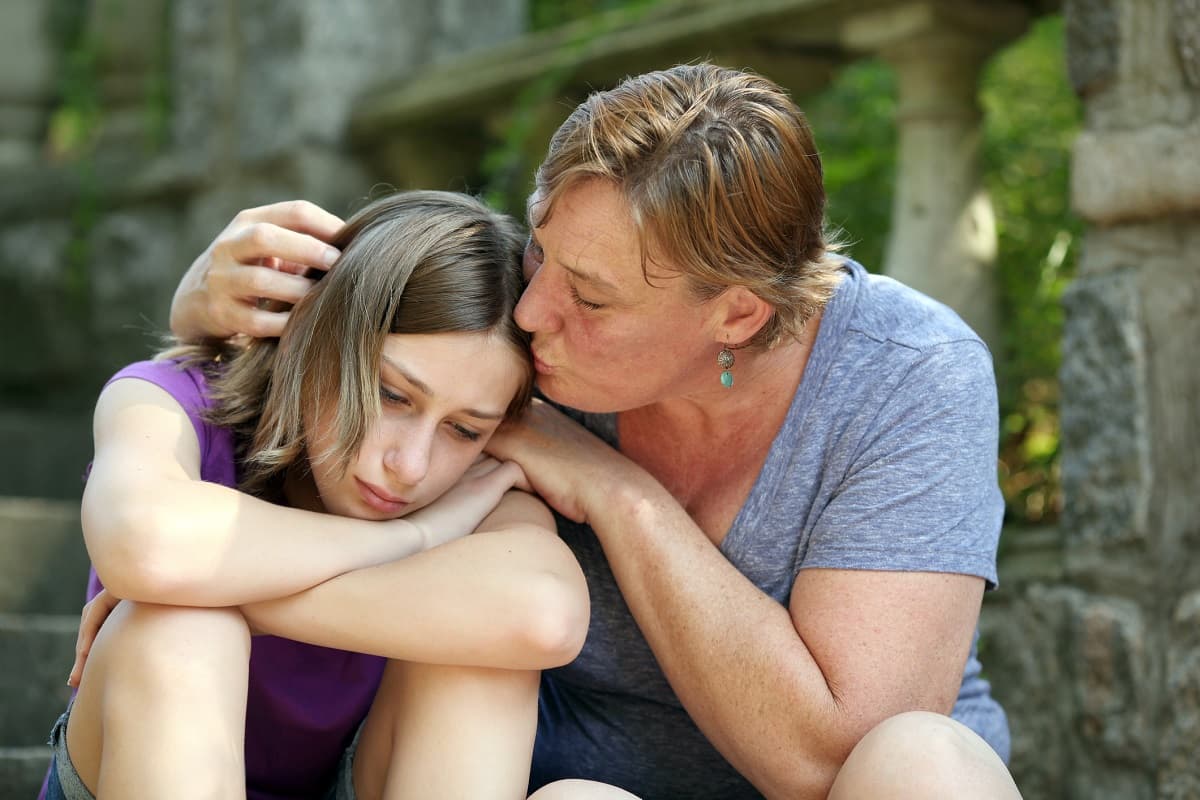
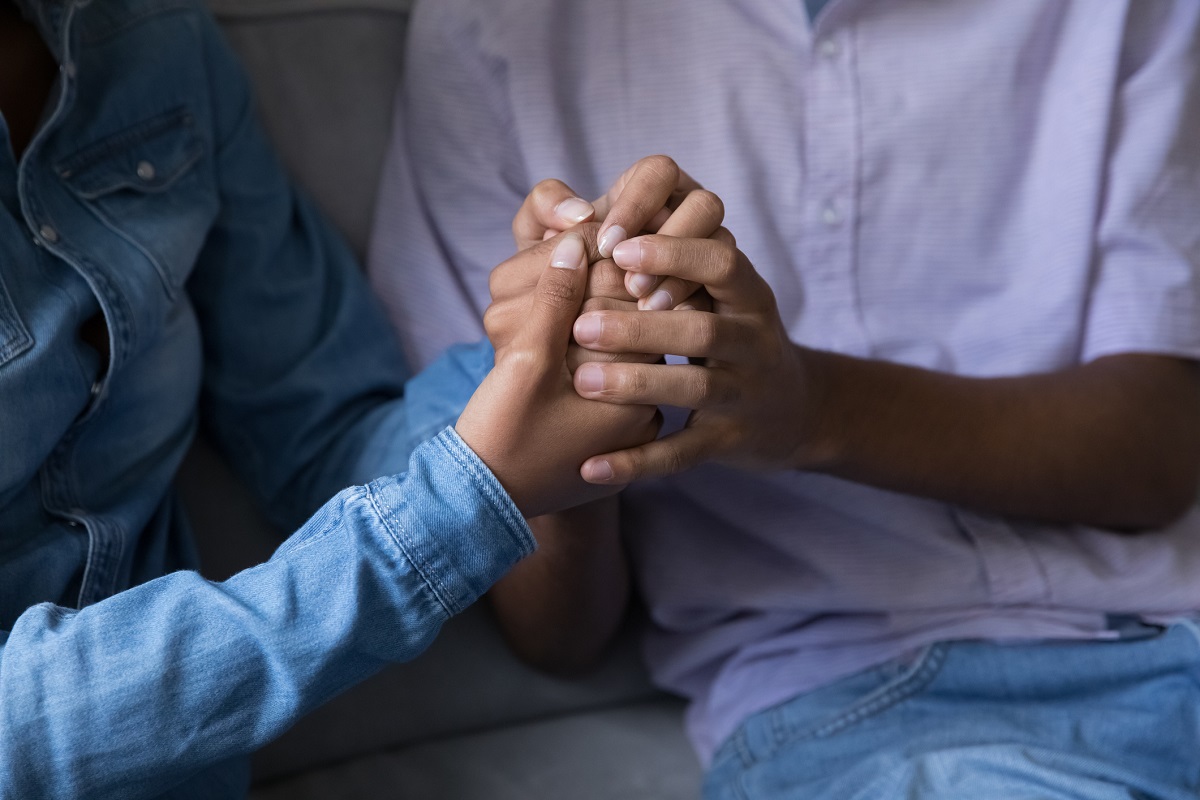
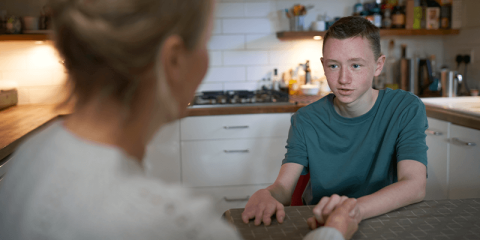

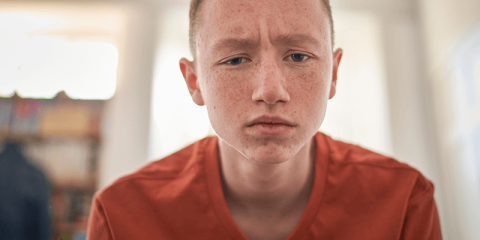
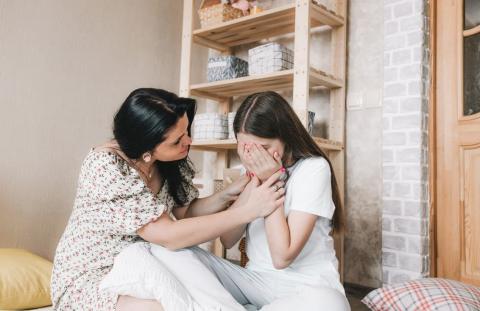

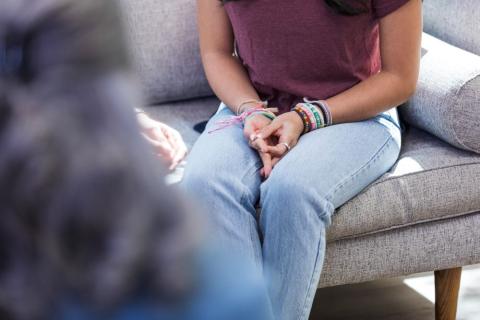
 Behaviour
Behaviour
 Sleep
Sleep